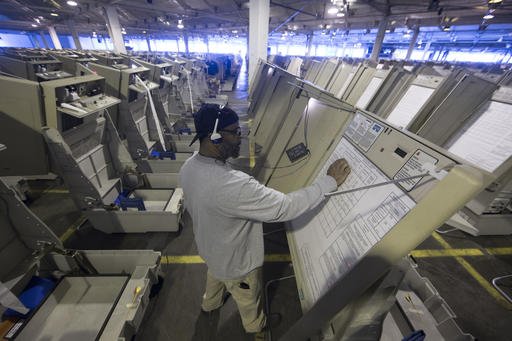ALLENTOWN, Pa. — Jill Stein's bid to recount votes in Pennsylvania was in trouble even before a federal judge shot it down Dec. 12. That's because the Green Party candidate's effort stood little chance of detecting potential fraud or error in the vote — there was basically nothing to recount.
Pennsylvania is one of 11 states where the majority of voters use antiquated machines that store votes electronically, without printed ballots or other paper-based backups that could be used to double-check the balloting. There's almost no way to know if they've accurately recorded individual votes — or if anyone tampered with the count.
More than 80 percent of Pennsylvanians who voted Nov. 8 cast their ballots on such machines, according to VotePA, a nonprofit seeking their replacement. VotePA's Marybeth Kuznik described the proposed recount this way: "You go to the computer and you say, 'OK, computer, you counted this a week-and-a-half ago. Were you right the first time?'"
Like many electronic voting machines, they are vulnerable to hacking. But other machines typically leave a paper trail that could be manually checked. The paperless digital machines open the door to potential election rigging that might not ever be detected.
"If I were going to hack this election, I would go for the paperless machines because they are so hard to check," said Barbara Simons, the co-author of Broken Ballots, a study of flawed U.S. voting technology.
Stein described her recount effort as a way to ensure that the 2016 election wasn't tainted by hacking or fraud. There's no evidence of either so far — a fact federal judge Paul Diamond cited prominently in his decision halting the Pennsylvania recount .
Stein pursued similar recounts in Wisconsin and Michigan, to little avail. Those states use more reliable paper-based voting technologies. (The Electoral College certified Donald Trump's presidential victory last week.)

